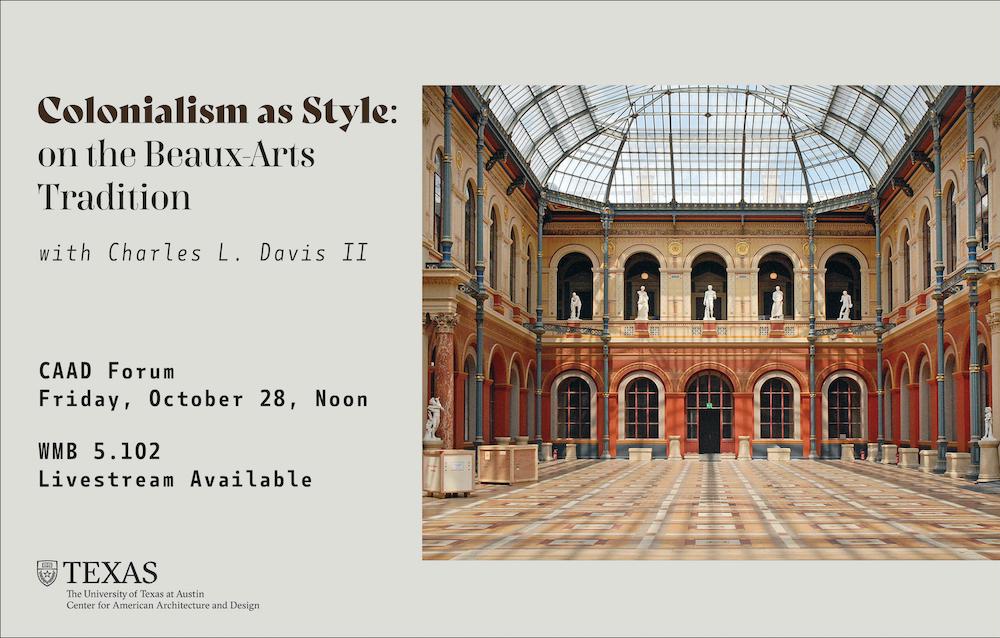CAAD Forum, Charles L. Davis II, "Colonialism as Style: On the Beaux-Arts Tradition"

On Friday, October 28, in WMB 5.102, the Center for American Architecture and Design hosts Associate Professor Charles L. Davis II for "Colonialism as Style: On the Beaux-Arts Tradition" as part of the CAAD Forum series.
This presentation examines the ways that the political function of the Ecole des Beaux-Arts, as an official state institution, inherently racialized the pedagogy of the school. The civilization imperatives of architectural education, when combined with the racial charge of nineteenth-century scientific theory, ultimately shaped the meaning of architectural historicism as it was expressed through type theory, character judgments, and the political associations of neoclassical architectural styles revived for use in Republican-era France.
The influence of the colonial function of the Beaux-Arts tradition can be seen in various forms: the architectural and visual language of the Ecole itself, which was premised on a biased catalog of world cultures; the racial and ethnic meanings of nonwestern styles of building used in annual ‘concours’ and ‘esquisse’ assignments that trained students to expand the reach of French rule into its colonial territories; and the evolutionary models of cultural history that subtended the writings and teachings of Beaux-Arts theory, which were finally disseminated to trained professionals in the United States. The translation of European architecture theory enabled professional designers in the United States to think of ‘American Architecture’ as a mode of autochthonous building that not only replaced the material culture of other indigenous groups as primary in the land, but extended the reach of the ancients in the civilizing mission of western art.
A livestream will be available for members of the UTSOA community, with the link provided by email prior to the event.
The CAAD Forum series, held roughly every other Friday during the fall and spring semesters, brings faculty, staff, and students together for an informal and inquisitive discussion about ideas relating to architecture and its history, theory, practice, and future.
Presentations are followed by time for Q&A, with the option to participate in person or via live webcast. Attendees are expected to follow the University's COVID-19 guidance, including recommendations for masks, distancing, and vaccination. Please note that lunch is not be provided.
